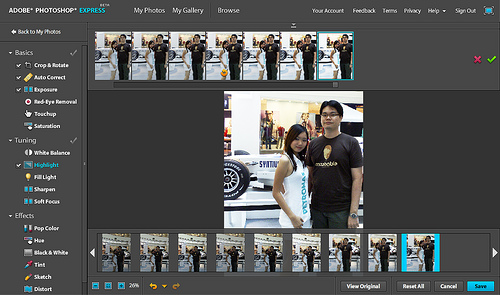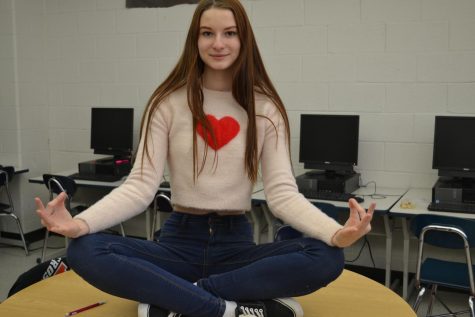OPINION: Edited pictures online create an unrealistic beauty standard

April 20, 2018
Days of browsing magazines are long gone, as teens now find themselves going online for their beauty regimens and goals. Despite the fact that barriers between higher ups in fashion and the masses have been broken down, insecurity still runs rampant.
Amanda Steele, a beauty YouTuber-turned-Instagram model, shared her thoughts on the pressure to be perfect online.
“People edit themselves so much on Instagram,” Steele said on Twitter. “It’s sad that people can’t just appreciate natural beauty.”
She followed up saying unrealistic images of oneself are unfair to followers, and she has a point. Followers will believe their idol looks perfect in every photo, when in reality, it is just editing.
Many people look at pictures online and can’t help but compare themselves. It is ingrained in youth’s minds that the more followers someone has, the more ideal their lifestyle is.
This came from the splurge of online attention. Whether it be from likes on Instagram or real life interactions, humans crave attention. This is why one sees an account with more followers as ideal. It means there will always be people giving attention.
On Instagram, unless a photo is flawless, as a result of editing, it won’t garner attention.
“I wish I looked like Instagram models,” senior Victoria Johnson said. “I sometimes feel insecure when looking at them.”
The idolization of blurred beauties leaves non-PhotoShopped people feeling inadequate. Most selfie takers cannot compare to an edited selfie, especially when considering that usually no one admits to editing. This silent-shopping creates an endless loop of insecurity, which then leads to more people editing their photos to catch up to everyone else.
According to a 2014 survey done by the Renfrew Center Foundation, half of the respondents admitted to retouching photos before putting it online. It may be a small fix, but the number is staggering. No one should feel the need to edit a photo.
“I have never edited a photo but I see how insecurity can make some people want to edit them,” Johnson said. “Everyone wants to look perfect, even if perfection is unrealistic.”
Pre-instant film photo editors worked on pieces of plastic with inverted colors (negatives) to add or subtract from photos. This meant that retouching was done by experts, not typical individuals. The increased access to photo editing tools allows people who would otherwise not be able to edit to retouch.
It is sad that in our current culture people feel more comfortable posting an edited version of themselves rather than unedited. And sometimes, people don’t even post themselves–they pretend to be other people.
The current state in society where one views himself or herself as not good enough is depressing. Movements such as body positivity (the idea that all bodies are beautiful) try to help, but the majority of people are still insecure. In an ideal world, posting one’s natural face online will be normal.
In the meantime, people should start complimenting those around them in real life, so when they go online, they will not feel the need to be someone else. Spreading positivity can change the world. And when it comes to insecurity, every compliment matters.

